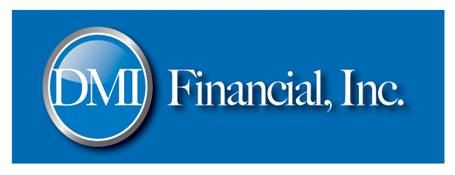 |
|---|
|
Jim
Drader Quick Quiz Each month I'll give you a new question. What was the title of Alfred Hitchcock's final film? Email answers to: Why Not Pass Me to a Friend? If you've enjoyed this newsletter and found its information useful, please forward it to a neighbor, friend or co-worker. Recipe: Nachos Ingredients • 1/2 cup sliced tomatoes • About 10 sliced black olives • 1 1/2 green onions • 1 jalapeno, sliced • 1/2 cup fresh grilled corn • 1/4 bunch roughly chopped cilantro • 1/3 cup nacho cheese sauce • 3 tbs salsa • 3 tbs sour cream • 1 tsp cumin • Bag tortilla chips Directions Preheat oven to 375 F. In a medium casserole dish, spread an even layer of chips on the bottom of the dish. Drizzle nacho cheese sauce evenly over the chips. Then, sprinkle some of the tomatoes, olives, sliced onions, corn, jalapenos and cilantro over the chips. Add another layer of chips. Pour the rest of the cheese sauce over the chips. Sprinkle the rest of the tomatoes, olives, sliced onions, corn, jalapenos, cilantro and the ground cumin over the chips. Bake in the oven for about 10 minutes or until cheese sauce is hot. Top with salsa and sour cream. Worth Quoting Added up, we spend days every year behind the wheel of our cars. Here are some quotes about driving. "Too bad the only people who know how to run the country are busy driving cabs and cutting hair."
George Burns
"The way I see it, if you need both of your hands for whatever it is you're doing, then your brain should probably be in on it too."
Ellen DeGeneres, on cell phones and driving
"I don't like driving very much. That makes me very unhappy, because I scream a lot in the car, but other than that, life is actually pretty good."
Whoopi Goldberg
"Have you ever noticed that anybody driving slower than you is an idiot, and anyone going faster than you is a maniac?"
George Carlin
|
How to Avoid a Tax Rate Shock A mortgage is a major obligation. People look at their annual mortgage statements to see what they paid, but they rarely think what can be done with their mortgages.What to look for With record-low housing prices and the record number of foreclosures and short sales that are available these days, potential homebuyers are coming out in droves for the right properties at the right prices. This is especially true with first-time homebuyers. First-time homebuyers are getting deals one homes that even a year or two ago might have been out of reach. But there is a drawback. When looking at short sales and foreclosures or other distressed properties, it's important to keep in mind that the taxes might be higher than you think. This is an issue that needs to be addressed when you go to get pre-qualified. Prior to being distressed, the properties had some assessed values that either the county or other taxing authority had placed on them. When a property's price was dropped by the seller, the tax or assessed value most likely remained the same. Let's say you are a first-time homebuyer who can afford $1,400 per month for mortgage, taxes, property insurance, etc., each month. When you get qualified, your lender might assume, for example, a tax rate of 2.5% per year on any property you look at. If your total payment comes to $1,400 per month, and then you go and look at a property where the assessed value is double the contract price then your effective tax rate is now 5%, doubling the tax component of your payment. This can easily lead to frustration for all involved. Homebuyers must know how much of the payment quoted by the lender is for taxes. If you're looking at distressed properties, then your effective tax rate will be the same as if you had purchased it at a pre-foreclosure or pre-short sale price. What Do I Need to Know About the Mortgages Offered? Interest Rates, Annual Percentage Rate (APR) and other costs Different lenders will have different offerings as far as rates, fees, and closing costs, and this is to be expected. While competing for you business, lenders and brokers still need to make a profit, and do this through either fees, or through the rates that they charge. Offering you a lower rate, the lender may charge you more fees than they would to a borrower that was getting a higher rate. Depending on what your long term goals are, you may be better off paying the fees, and getting the lower rate, as over time, the savings could more than pay for the extra upfront costs. Regardless of what terms you choose, you should be aware of what the APR, or Annual Percentage Rate is. This is a rate, in simple terms, which rolls some of the expenses of the loan into the rate. This rate will always be higher than the interest rate you are quoted, and will be determined by the fees you are being charged. If, for example, you are quoted a rate of 5.50% on a fixed rate loan, and your APR is 5.88%, you could go to another lender and compare the APRs. If lender number two has an APR of 5.82%, then you know that the total cost of the loan is lower with them. With the strict guidelines with regard to lender disclosures, you should now be able to compare apples to apples when shopping for a mortgage. Loan Rate Locks A rate lock is where you as a borrower agree to accept a certain rate on a mortgage from a lender for a certain period of time, usually 30 or 45 days. The loan must close within this timeframe, or the lender will charge a daily rate extension fee to hold that rate. Floating the rate on the other hand means that you agree to wait on locking the rate, as you expect it to be better sometime between the time of application and the time of closing. There is no obligation on your part to lock the rate during the process, but the lender may require a lock up to several days prior to closing. The advantages of locking a rate earlier rather than later are obvious in that it would be protection against rate spikes upward, but at the same time if the rates should drop, you would be locked into the relatively higher rate. Lenders and brokers are asked by borrowers all the time what they think the rates are going to do. The honest answer is that nobody, including brokers and lenders can predict with 100% accuracy what rates will do. They may be able to give advice, but the have access to the same market information that anybody else watching it does. The decision to lock will need to be made by you, the borrower. How New Mortgage Rules Help You Choose Safely In an effort to keep fraud in the mortgage industry to a minimum, a new set of laws was introduced in 2010 to address how lenders must disclose important information to borrowers. The laws attempt to do two things. The first, part of which has been in place for some time already, is to disclose information to borrowers in such a way that they can shop around and compare options. The second is to disclose fees in such a way as to avoid surprises at the closing table, specifically for people purchasing a home as opposed to just refinancing. Fees are disclosed on what is called the good faith estimate at the time of application. The costs disclosed in these estimates must fall within certain tolerances of the actual numbers that borrowers will see at the closing table. The costs can definitely go up in certain circumstances, such as in the case of rate spikes, but this information must be disclosed to a borrower well in advance of closing so the borrower can decide whether or not to proceed with that lender. Should there be huge overages in the costs from an initial estimate, the lender must absorb the difference. The new rules will permit borrowers to compare apples with apples when looking for a mortgage. When reviewing offers, however, keep in mind that a lender might charge a higher fee but offer a lower rate that might pay for the fee many times over and could be a better deal than a no-closing-costs loan with a higher rate. Why Right Now Might Be the Best Time to Buy a Home Buying right is the first step to profit and success but after the bubble crisis, some potential buyers have been afraid to act. If you have been sitting on the side-line waiting for the next buying opportunity, now might be the time to buy. Interest rates remain low. Don’t just think about the price of the house alone. If you purchase a median-priced home, every ½ point increase in interest results in an extra $1,000 annually for as long as you hold the loan. Inflation adjusted prices are lower than ever. Nominal home prices have dropped 5, 10 or even as much as 25% from previous highs in most areas. When adjusted for inflation the savings are even greater. Banking regulations are tightening. Recent economic indicators lead many to believe banks will tighten lending requirements by requiring larger down payments, stricter qualification guidelines and other restrictions. Even if interest rates remain low, it could become much more difficult to qualify for a mortgage in the future. Rising rents. Rental rates have been increasing with rate hikes expected for the next several years. During tough economic times, the ability to lock in a price and control costs is important to maintaining a working budget. Fabulous foreclosures and incentives. Special programs at the state, local and federal level are able to assist investors and homeowners in purchasing foreclosures, short sales, REOs, and other property through special programs and incentive packages. Click to go back to: |


